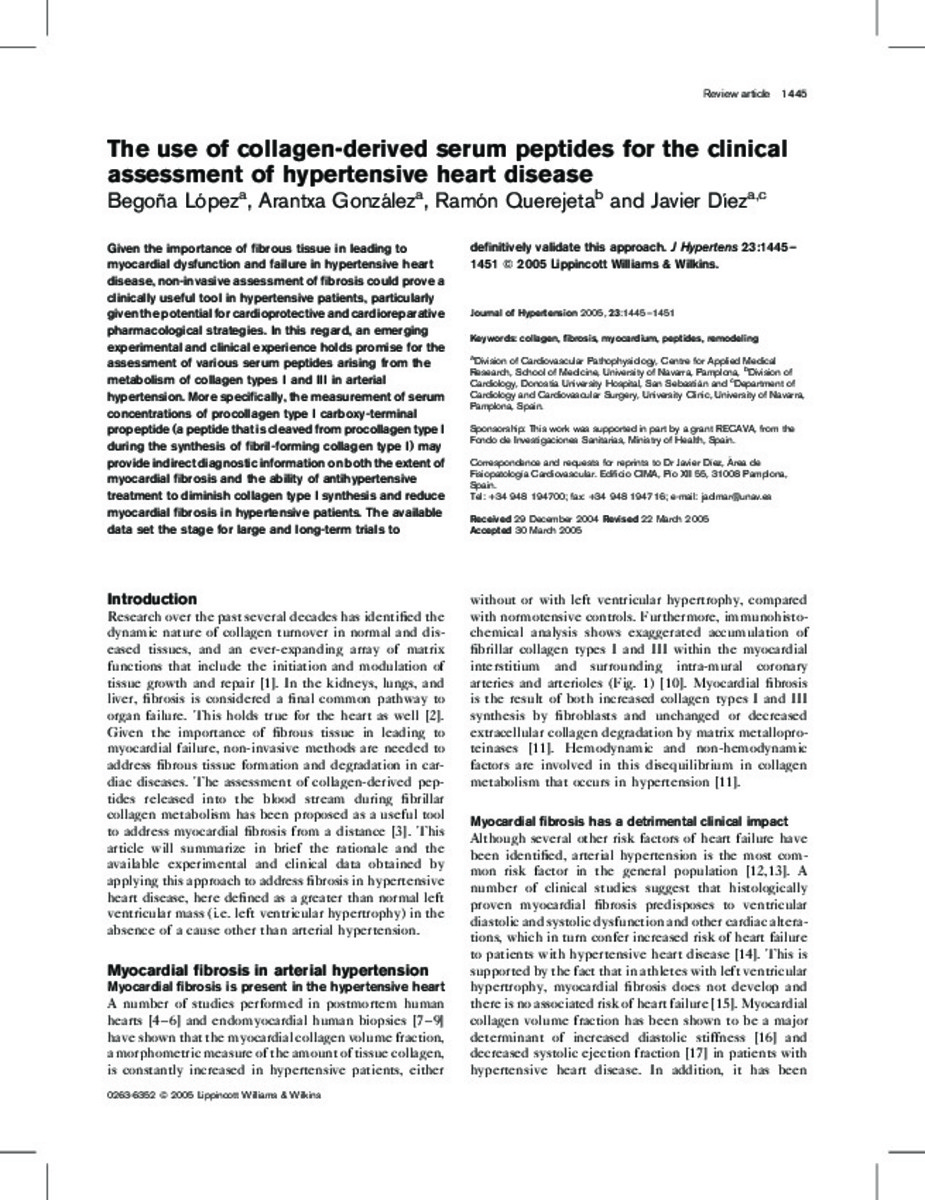The use of collagen-derived serum peptides for the clinical assessment of hypertensive heart disease
Palabras clave :
Collagen
Fibrosis
Myocardium
Peptides
Remodeling
Fecha de publicación :
2005
Editorial :
Lippincott, Williams & Wilkins
Cita:
Lopez B, Gonzalez A, Querejeta R, Diez J. The use of collagen-derived serum peptides for the clinical assessment of hypertensive heart disease. J Hypertens 2005 Aug;23(8):1445-1451.
Aparece en las colecciones:
Estadísticas e impacto
0 citas en

0 citas en

Los ítems de Dadun están protegidos por copyright, con todos los derechos reservados, a menos que se indique lo contrario.










